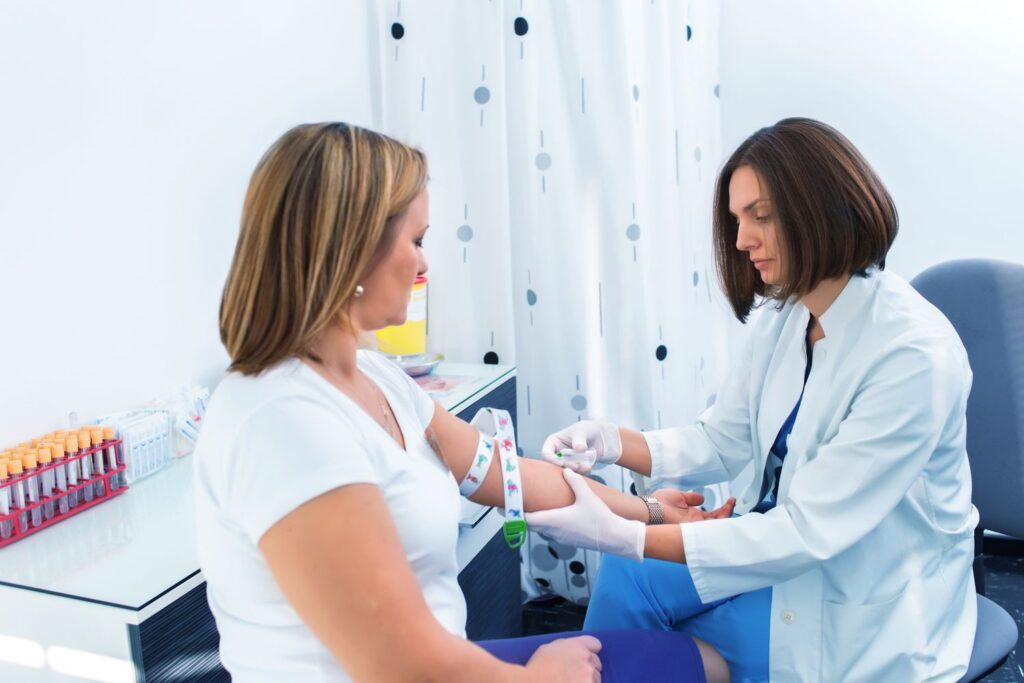
In today’s competitive healthcare world, nurses are constantly seeking ways to improve their skills and stand out. One simple yet powerful way to do that is by taking a phlebotomy course. While nurses already learn basic blood draw techniques during training, a dedicated phlebotomy course goes deeper—teaching more advanced procedures, handling complex patients, and mastering tools with confidence. It’s a smart move that sharpens technical skills while expanding career opportunities.
Whether you’re a fresh nursing graduate or an experienced RN, learning phlebotomy opens the door to better efficiency, patient satisfaction, and higher job performance. In fact, many hospitals and clinics value nurses who can perform clean, painless blood draws without needing help from specialized staff. From improved patient care to increased job flexibility, the advantages of adding phlebotomy to your skill set are plenty. Let’s explore the top 10 ways a phlebotomy course for nurses can enhance your nursing career.
1.Increases Technical Confidence
Even experienced nurses can feel unsure during difficult venipuncture procedures. A phlebotomy course builds your confidence by giving hands-on practice with a variety of patients, veins, and tools. You’ll learn the best techniques for minimizing pain, reducing error, and drawing blood on the first try. This boosts your overall clinical performance and reduces stress during busy shifts.
2.Improves Patient Experience
Patients often remember how well (or poorly) their blood was drawn. A nurse who’s skilled in phlebotomy can make the process smooth, gentle, and efficient. That leaves a positive impression, increases trust, and helps with patient cooperation—especially for anxious patients or children. Happier patients are also more likely to follow medical advice and return for follow-up care.
3.Adds Value to Your Resume
Employers notice when nurses go above and beyond the basics. Listing a phlebotomy certification on your resume shows dedication to learning and a commitment to patient care. It also signals that you can multitask effectively—an important trait in fast-paced environments like emergency rooms or outpatient clinics.
4.Reduces Dependency on Other Staff
In some settings, nurses may have to wait for phlebotomists to draw blood, delaying treatment or diagnostics. When you’re trained in phlebotomy, you can step in and handle the task yourself—saving time, reducing patient wait times, and keeping workflows smooth. This makes you a more independent and resourceful member of the team.
5.Opens Up More Job Opportunities
Many healthcare facilities prefer to hire nurses who can perform phlebotomy confidently. Some even require it. Whether you’re applying to hospitals, private clinics, diagnostic labs, or home health agencies, your ability to draw blood adds an edge. It can even qualify you for travel nursing roles or specialized units where phlebotomy is routine.
6.Helps in Emergency Situations
In emergencies, every second counts. Nurses trained in phlebotomy can act quickly to collect needed samples, even in high-pressure scenarios. This skill is especially valuable in trauma units, intensive care, and emergency rooms where fast diagnosis can make a life-or-death difference.
7.Enhances Interdisciplinary Teamwork
Understanding the phlebotomy process makes it easier to communicate with lab technicians and other healthcare professionals. You’ll know what samples are needed, how they should be labeled, and how to troubleshoot common issues. This understanding strengthens team dynamics and improves overall patient care coordination.
8.Gives You a Competitive Edge for Promotions
When it comes to promotions or leadership roles, those with a broader skill set often stand out. Your ability to manage more tasks, teach new nurses blood-draw techniques, or step in when phlebotomists are unavailable shows leadership and initiative—traits managers love to see.
9.Enhances Community and Home Care Services
If you work in community healthcare or home visits, a phlebotomy course is a must-have. Often, these settings don’t have phlebotomists on call, and nurses must handle blood collection themselves. With proper training, you can perform these services safely and efficiently, bringing better care to patients in remote or underserved areas.
10.Boosts Your Earning Potential
Adding phlebotomy to your nursing credentials can increase your income potential. Some facilities offer bonuses or higher pay rates to nurses who can take on multiple roles. It can also make you eligible for specialized tasks or private contracts where phlebotomy is a central skill. Over time, this added capability can lead to a more lucrative and stable career path.
Incorporating phlebotomy course in UAE into your nursing career is a smart, strategic move. It enhances your technical abilities, strengthens your resume, and opens up new job opportunities. More importantly, it helps you provide better, faster, and more compassionate care to your patients. As the healthcare industry continues to evolve, professionals who go the extra mile by adding specialized skills like phlebotomy will always stay ahead.
Whether you’re just starting out or looking to grow in your current role, enrolling in a phlebotomy course is a powerful way to invest in your future. The time and effort you put into learning this valuable skill will pay off with increased confidence, professional respect, and long-term career success.


